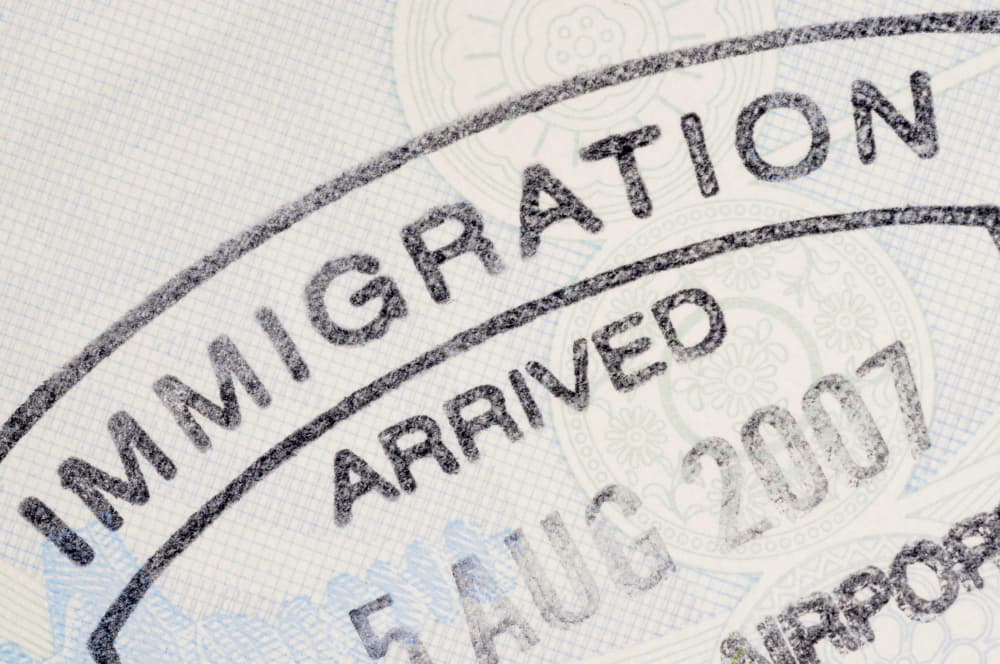
If you are planning to visit Canada as a tourist, you will need to apply for a visitor visa. This visa is also known as a temporary resident visa (TRV) and it allows you to enter and stay in Canada for a limited period of time. To apply for a visitor visa, you will need to determine your eligibility, have a valid passport, be in good health, provide proof of funds, and demonstrate that you intend to leave Canada when your visa expires.
You can apply online. The application form will require you to provide personal information, your reason for visiting Canada, travel plans, and other details. There is an application fee that is required for processing of the application. You will also need to provide biometrics (fingerprints and photograph) and may be required to attend an interview.
Many visitor visas are refused for a variety of reasons. Not only can we assist you with your application to maximize your chances of obtaining the visa, but we can appeal your decision to the Federal Court if the visa is refused. We have had a lot of success at the Federal Court and have been able to get visas granted even after they have been refused several times.
If you have an innovative business idea and the resources to set up a start-up in Canada, you may be eligible to apply for a Start-Up Visa Program (SUV). This program offers a pathway to permanent residency for entrepreneurs who demonstrate their ability to create innovative business ideas and jobs and compete globally.
To be eligible for an SUV, an applicant must:
A letter of support from a designated organization is a key requirement of the SUV application. The designated organization must be a government-designated entity or venture capital fund that has a mandate to invest in start-ups.
A minimum level of proficiency in English or French is required. The minimum language level determined for applicants is the Canadian Language Benchmark (CLB) score 5.
applicants must demonstrate that they have enough money to support themselves and their family members in Canada.
All applicants must undergo medical and security screenings before being issued a visa.
An applicant must first secure a commitment from a designated organization to support their business idea. The designated organization assesses the business idea, the applicant’s ability to execute the plan, and the potential contribution to Canada’s economy. We can help you to contact designated organizations and present their ideas if you have an innovative idea.
Once the applicant has secured a letter of support, they can complete the SUV application. The application includes personal information, details of the business idea, and supporting documents.
Applicants are required to pay a non-refundable processing fee and a right of permanent residence fee.
Once the application is submitted, applicants must undergo medical and security screenings. The medical exam must be conducted by a doctor approved by the Canadian government, and the security screening includes a criminal record check.
After the medical and security screenings, the immigration officer may request additional information or an interview. Once the assessment is complete, the immigration officer will either approve or reject the application. Conclusion: The Start-Up Visa Program is designed to attract entrepreneurial talent to Canada and foster economic growth. If you are an entrepreneur with a solid business plan and the resources to launch a start-up in Canada, the SUV may be the right pathway to permanent residency. Make sure to meet all the eligibility requirements and follow the application process carefully to increase your chances of success.

A Labour Market Impact Assessment (LMIA) is a decision rendered by Service Canada – Temporary Foreign Worker Program that Canadian employers might need to obtain before they can hire foreign workers on a temporary basis. It is an important step in the process of bringing in foreign workers to Canada.
The employer must provide evidence that the foreign worker possesses skills that are in demand and that there are no qualified Canadian citizens or permanent residents available to fill the position. The employer must meet certain wage and working condition requirements for the specific position and must provide the foreign worker with the same working conditions as Canadian citizens or permanent residents.
It is the employer that completes the LMIA application, which includes providing all necessary details about the job opening and the foreign worker they wish to hire. They must also provide any supporting documentation requested by the government. In summary, in order to apply for an LMIA, Canadian employers must meet certain requirements such as identifying the job requirements, conducting recruitment efforts, providing evidence that hiring a foreign worker will not negatively impact the labour market, meeting wage, and working condition requirements, and completing the LMIA application.
We assist employers with the LMIA application and also assist the worker in obtaining their work permit. This is an onerous process, and an experienced lawyer can significantly enhance your chances of success on this application.
Work permits in Canada are widely available for foreign nationals who want to work in Canada on a temporary basis. The Canadian government recognizes the importance of immigrants to the country’s economy and has created various programs to help temporary foreign workers come to Canada and find gainful employment.
One popular program for work permit in Canada is the Temporary Foreign Worker Program (TFWP). The TFWP allows Canadian employers to hire foreign workers for jobs that Canadians cannot or will not fill. Another program available for temporary work visas in Canada is the International Experience Canada (IEC) program. This program is designed for young adults who want to live and work in Canada for up to two years. One of the IEC categories is the Working Holiday Visa. This allows young people to come to Canada and work temporarily.
Canada has some of the best schools in the world and welcomes foreign students. For students wishing to study in Canada for more than 6 months, a study permit is required. The first step in applying for a study permit in Canada is to research and choose the school and program that you want to attend. Make sure that the school is a designated learning institution (DLI) and that the program qualifies for a study permit.
Once you have chosen a school and program, you must apply for admission and obtain an acceptance letter from the institution. In order to apply for a study permit in Canada, you will need to provide several documents, including a valid passport, a letter of acceptance from a DLI, evidence of financial support, and proof of English or French language proficiency.
You can apply for a study permit online through the portal of Immigration Refugees Citizenship Canada(“IRCC”). You will need to pay the application fee and submit all of the required documents. In some cases, you may be required to attend an interview at a Canadian embassy, high commission, or consulate.
Once your application has been submitted, you must wait for a decision from IRCC. The processing time for a student visa can vary. If your application is approved, you will be issued a study permit. Our office has experience and expertise in every step of the process and can help guide you to obtain your study permit.